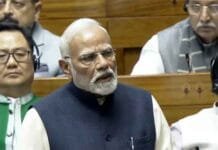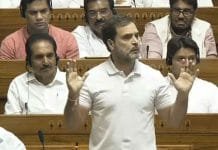Raj Thackeray, president of the Maharashtra Navnirman Sena (MNS), is set to take a bold stand in the upcoming Maharashtra Assembly elections. Unlike his previous alliance with the BJP Mahayuti during the Lok Sabha elections, Thackeray is choosing to go solo this time. His strategy involves contesting approximately 175 out of 288 seats, a move he believes will benefit his party in the current political climate.
MNS to Challenge Top Leaders
Thackeray has made headlines by announcing that his party will field candidates against high-profile figures, including Chief Minister Eknath Shinde and Deputy Chief Minister Devendra Fadnavis. This decision marks a significant departure from MNS’s previous political strategies and underscores Thackeray’s intent to carve out a unique political space for his party.
Critique of the Current Government
In a recent press conference in Nagpur, Thackeray criticized the Chief Minister Ladli Behan Yojana, suggesting it fails to address the real needs of the people. He argued that citizens seek employment and practical solutions rather than handouts. Thackeray contends that farmers, for instance, are not demanding free electricity; they want meaningful support, not just promises.
Raj Thackeray’s Stance on Caste and Reservation Issues
Despite his strong opinions on various issues, Thackeray has chosen to remain silent on the Maratha reservation and the Manoj Jarange Patil movement. He has previously addressed these topics, stating that his position on reservation issues remains unchanged. Thackeray refrains from delving into these matters, focusing instead on his broader critique of the current political landscape.
Targeting Sharad Pawar and the NCP
Thackeray has not spared Sharad Pawar and the Nationalist Congress Party (NCP) from his criticisms. He accuses Pawar of being the architect of the state’s political turmoil, blaming him for the rise of divisive and caste-based politics in Maharashtra. According to Thackeray, the NCP’s formation and subsequent activities have contributed significantly to the current state of political disarray.
The Legacy of Anarchy and Violence
Thackeray also pointed out that the NCP’s establishment marked the beginning of increased violence and political instability in Maharashtra. He claims that the party’s origins in a period of political anarchy have led to ongoing issues in the state. Thackeray’s criticisms reflect his broader discontent with the current political dynamics and his determination to challenge the status quo.
MNS’s New Direction
Raj Thackeray’s approach to the upcoming assembly elections represents a strategic pivot for the MNS. By choosing to contest against major political figures and criticizing existing government schemes, Thackeray is positioning his party as a formidable alternative in Maharashtra’s political landscape. His stance on various issues and critiques of established parties highlight his commitment to driving change and addressing what he perceives as systemic failures in the state’s governance.



















